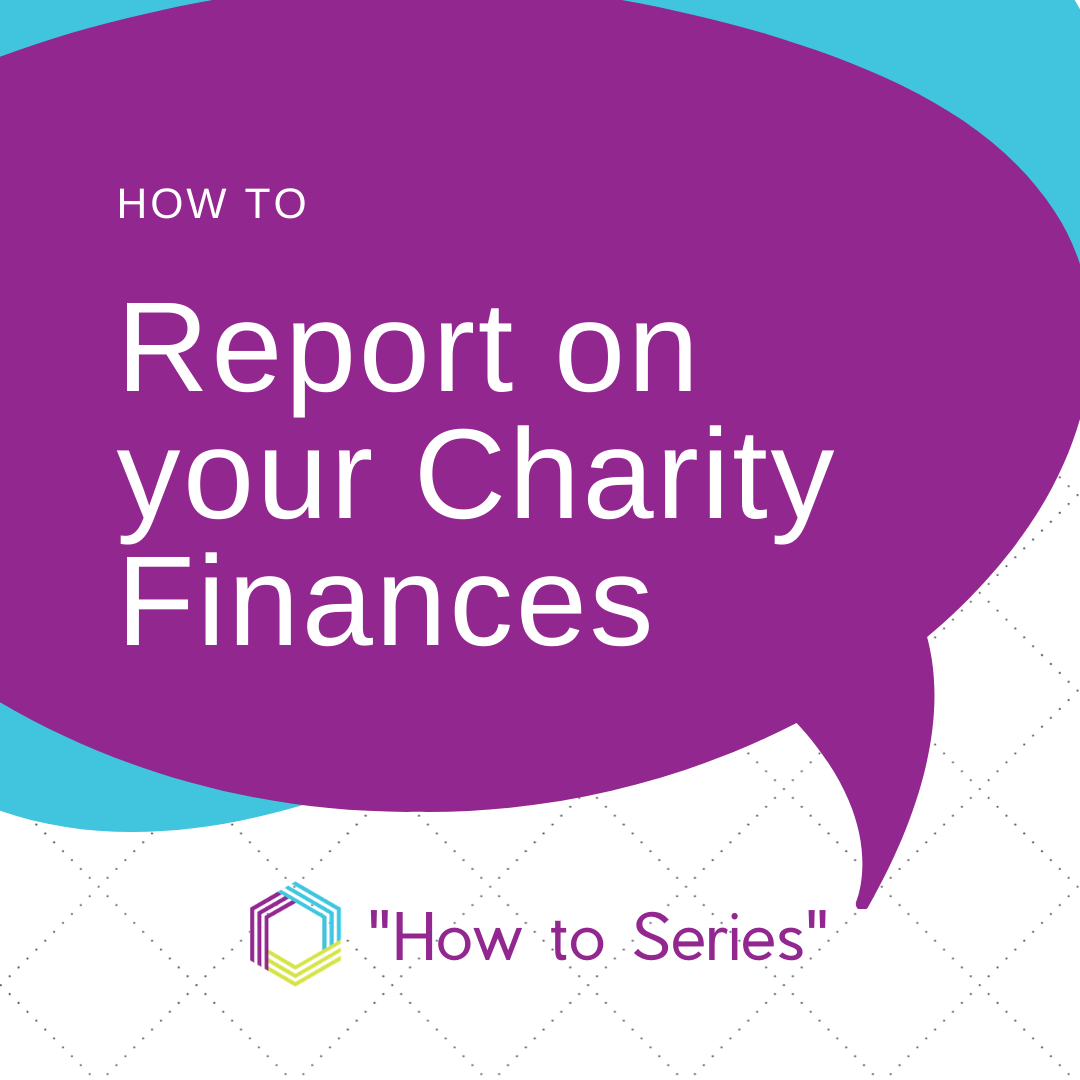How to Report on your Charity Finances
Your group must ensure both regular and annual reporting of your charity's finances. This is necessary to manage finances effectively for transparency and governance purposes.
Financial Reporting at the Committee Level
Although the Treasurer’s role is to maintain and report on your group’s finances, the committee as a whole is responsible for the financial management of the group.
The Treasurer should provide regular financial reports via committee meetings. Via these reports, the committee should monitor income and expenditure and any spending via grant aid.
The Committee should discuss, make decisions, and, if required, take action on finances. Any decisions taken regarding finances should be recorded.
Reporting to Funders
When you receive funding, you must submit a monitoring report to the Funder. The information requested will differ from funder to funder. At a basic level, the Funder wants to know that your group has spent the funding on what you said you would spend it on.
Your group should regularly monitor funding spend.
Ensure the spending is in line with the budgets/spending set out in your funder's letter of offer.
Bear in mind whether funding is restricted or unrestricted:
Restricted Funding – Funding secured for specific spending, i.e. particular activity.
Unrestricted Funding – Funding secured for non-specific spend. The group can decide what unrestricted funds can be spent on.Liaise with the Funder if you are having difficulties (e.g., over or underspend). Contact them if you would like to spend funding on something other than what you proposed in your application.
Provide receipts and supporting documentation in line with funding terms & conditions.
Make sure to take photocopies of any originals you send to a funder as part of funding returns (e.g., receipts and bank statements).
After the project, retain any documentation in line with funding terms & conditions.
Annual Reporting
Your constitution will set out the group's financial year (typically 1 April—31 March). The Treasurer should keep accounts in accordance with this and present an Annual Statement of Accounts for the committee to approve.
Accounts will be prepared as Receipts and Payments Accounts or Accruals Accounts. The Charity Commission has further guidance on which accounts your group needs to prepare.
Your accounts will also have to be externally scrutinized on an annual basis, either via independent examination or an audit. Details of this will be specified in the “Finance” section of your constitution.
For further information on this, including guidance on who can be an independent examiner, visit www.charitycommissionni.org.uk/manage-your-charity/annual-reporting/.
Financial Reporting at your Annual General Meeting (AGM)
Held once a year, your AGM provides the opportunity to review your activities, report to your members and elect your committee. See How to Hold an Annual General Meeting.
At the AGM, you must present an Annual Statement of Accounts/Treasurers Report. This provides an opportunity to be open and transparent with members regarding the group’s accounts. Accounts must be examined and verified by someone independent of the group, i.e. having been independently examined or audited.
At your AGM you will also appoint someone to take on this role for the next year.
Charity Commission: Annual Returns
Once your group is registered with the Charity Commission for NI, you are required to report on your finances to the Commission annually. This is known as “annual reporting” and is a legal requirement.
Charities will be required to complete and submit an online annual monitoring form, also attaching:
The Charity’s Accounts
The Trustees’ Annual Report
Report from Independent Examiner / Auditor (as applicable)
For further guidance, visit www.charitycommissionni.org.uk/manage-your-charity/annualreporting/.







